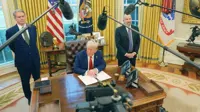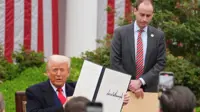Disgraced Korean scientist creates first British dog clone
10 Apr 2014
The birth of Britain's first cloned dog has provided fresh impetus to the debate on genetic engineering, with scientists raising ethical concerns and the lay public dubbing it a "ridiculous waste of money" - it seems more a commercial venture than a scientific experiment.
Sooam Biotech, a South Korean company, said it had cloned the puppy, named Mini-Winnie, from a 12-year-old dachshund belonging to Rebecca Smith, a caterer in west London. She had won a competition run by the company, which hopes to sell the service to pet owners for £60,000 a clone.
Mini-Winnie was born after scientists took skin cells from Smith's pet and dropped them into donor eggs to make embryos that were carried by surrogate dogs. The puppy must remain in Korea for six months to satisfy British quarantine laws.
But researchers warned that while a cloned dog might look similar to its biological parent, it will be a very different animal.
"You would have about as much chance of replicating your favourite pet by choosing one from Battersea Dogs Home as you would from cloning it. And the former is likely to be loved more as it will not fail your expectations," said Robin Lovell-Badge, a geneticist at the National Institute for Medical Research in London, told The Guardian newspaper.
"It is extremely unlikely that a puppy cloned from a favourite pet will grow up to behave the same way."
Dusko Ilic, a stem cell scientist at King's College London, said, "As time passes by, the differences will be more and more pronounced, especially personality traits. It is an absolute waste of money."
The cloning process is controversial because the animals are often born with abnormalities or die soon after birth.
Dr Hwang Woo-suk, the lead scientist at Sooam Biotech, reported the first cloned dog in 2005. But Snuppy was the only healthy puppy to survive after 1,095 cloned embryos were implanted in 123 dogs. At least one was lost to a miscarriage, while another clone died at three weeks from respiratory problems.
"I see no valid justification for cloning pets. It is a ridiculous waste of money and hope as well as being ethically very dubious," Lovell-Badge said.
Dr Hwang is a disgraced stem cell researcher who was at the heart of one of the worst scandals in modern science in 2004, when he claimed to have made stem cells from patients' skin tissue.
It emerged later that he had collected human eggs from female members of his research team. He was convicted of fraud and forced to resign from his job at Seoul University.
























